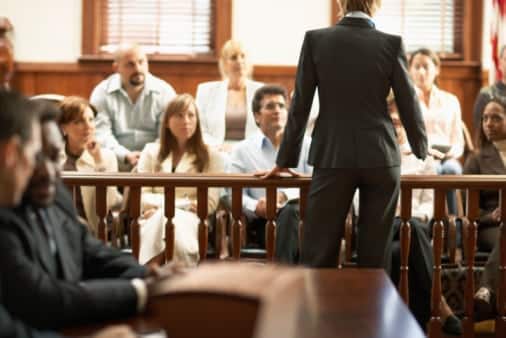
In mid-April, a Nevada jury awarded a Lowe’s customer more than $16 million for a permanent head injury suffered at the store. Her lawyers hope that the decision will sway the hardware chain to reevaluate its safety practices.
In 2013, Kelly Hendrickson, 42, slipped and fell in the water and garden department while browsing for a palm tree. She struck her head on the concrete floor and as a result, permanently lost her senses of taste and smell and suffered other injuries as well. She claims that she did not see a cone to warn of the water while the store watered the plants, and contends that the store did not do enough to protect customers.
Jury deliberated only six hours
During an 11-day trial, the plaintiff argued that she could not see a yellow safety cone because Lowe’s personnel had placed it partially hidden by a table. Counsel for Lowe’s, on the other hand, argued that she had to have seen it as she walked around the planter table. They also argued that the cone and the water were “open and obvious”, putting Hendrickson on notice that she needed to be careful.
The jury deliberated only six hours before returning a verdict in favor Hendrickson. The award includes $1.9 million for medical expenses plus another $14.5 million for pain and suffering. The jurors, however, determined Hendrickson was 20 percent responsible and the finding may reduce the award to about $13.1 million. The jurors also rejected her request for punitive damages.
Proving slip and fall liability
Each day, we venture out into the world and into places where we have no control over the terrain – in places like stores and restaurants, someone else owns the property and is responsible for keeping it maintained. When a customer or other visitor slips and falls due to poor maintenance or some other property defect, they may be entitled to compensation.
To recover for injuries after a slip & fall accident on another’s property, plaintiffs must prove:
- Duty – The defendant was in a position that required it to maintain the property;
- Notice – The defendant knew or should have known about the defective condition that could cause harm;
- Dangerous condition – The premises had a flaw that presented a danger, more than a minor defect, to the public; and
- Damages – The plaintiff was injured as a result of the dangerous condition.
Many plaintiffs are not prepared to offer evidence in support of each of these elements and this can prevent recovery. It is therefore important to speak with a highly experienced slip and fall attorney who understands the nuances in such claims.
If you have seen your life turned upside down in an instant because of a serious slip and fall, you may be entitled to compensation. To discuss the details of your case with trusted Maine accident lawyers, please call the law offices of Hardy, Wolf & Downing to arrange a free and confidential legal consultation. Call 1-800-INJURED to learn more today.

